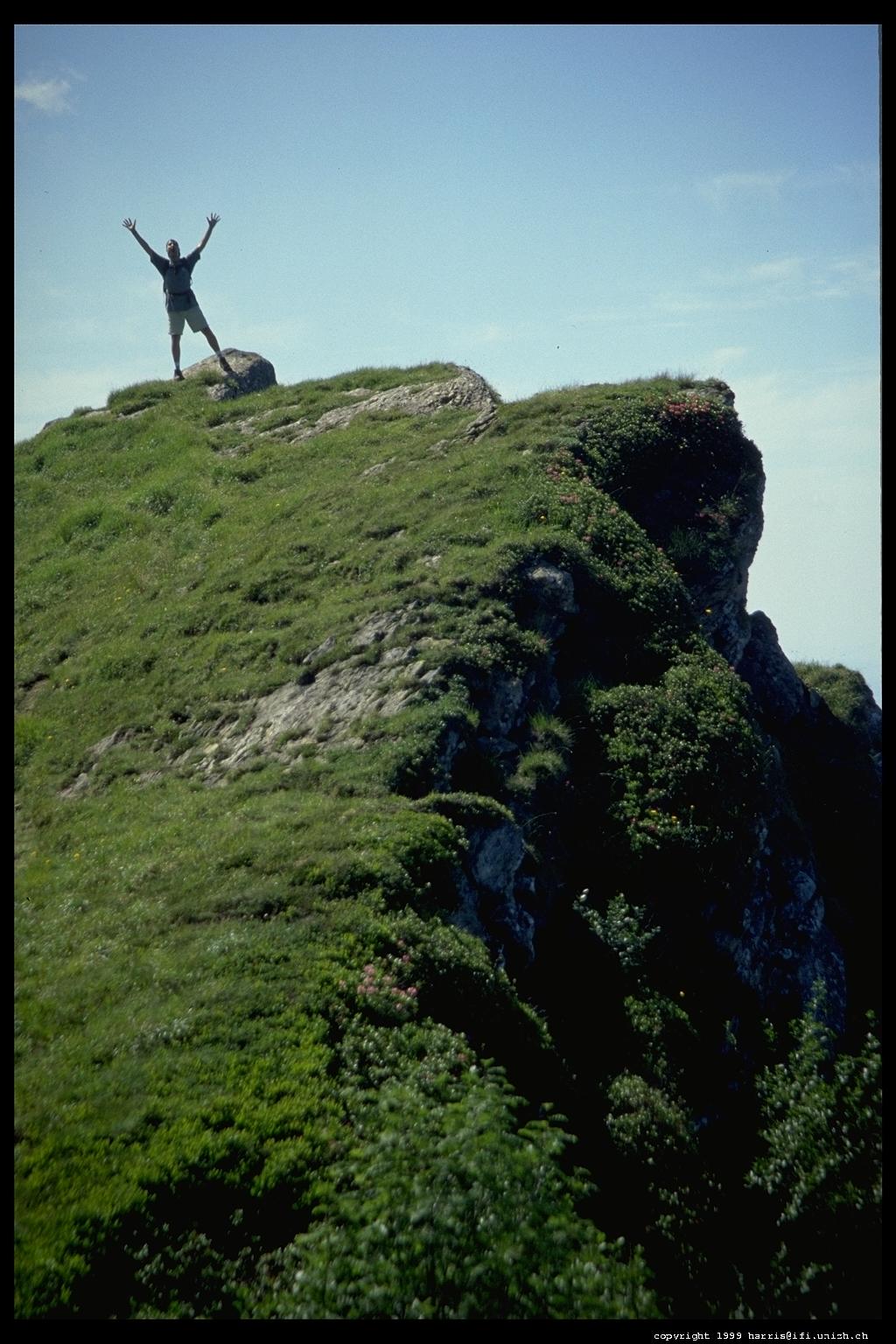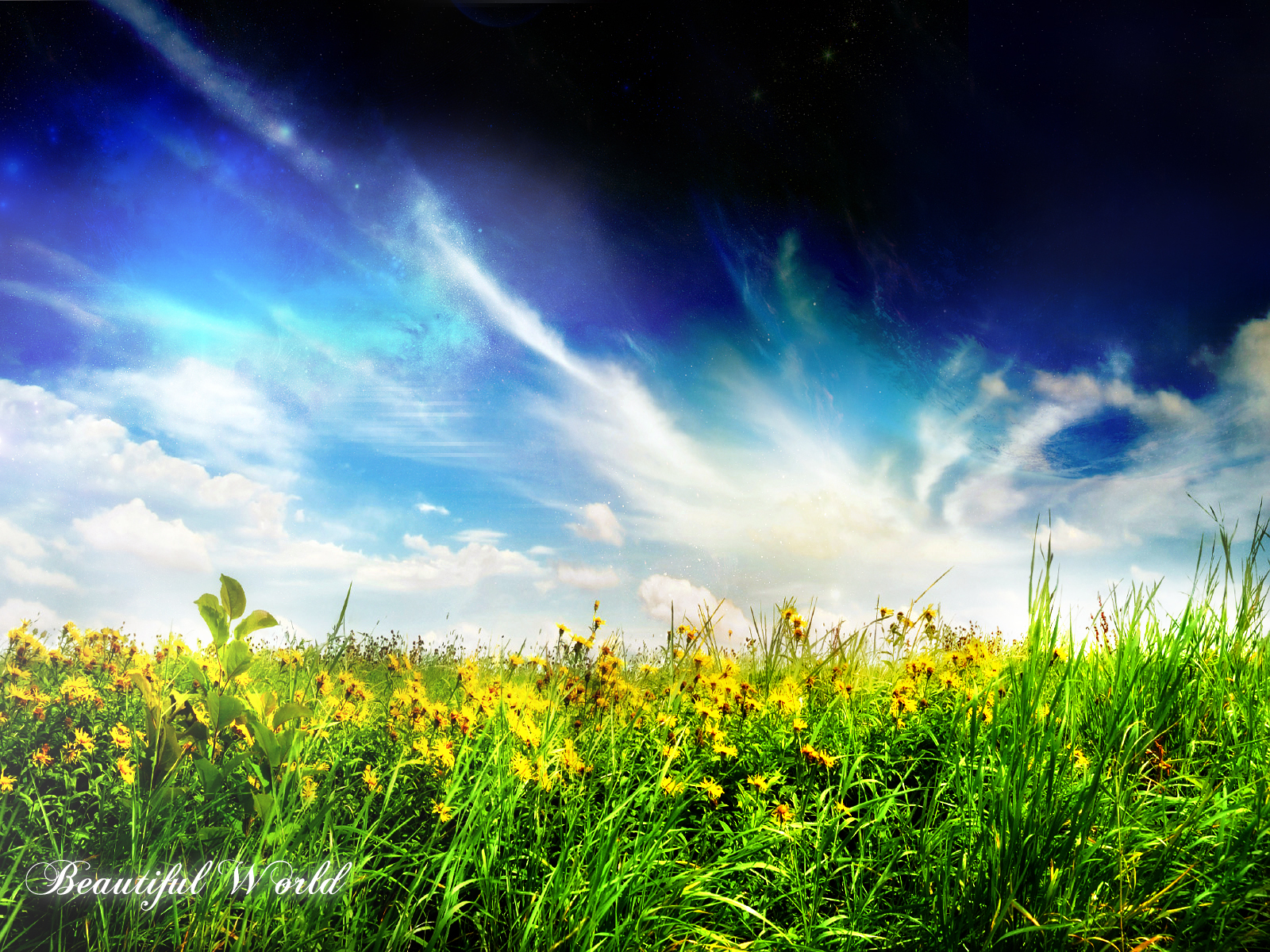A few days ago I used this picture in a post. I don't have some magical formula to my pictures. I simply run an interesting phrase through google image search to see what comes up. The phrase that came to mind was "courageous vision" and it resulted in the above picture.
I think it's a beautiful image. The user's Flickr account, Ganga Sunshine, displayed a lot of similar work with explosions of colors and... and techniques and methods whose names are beyond me. But with the above picture, I felt that it fit my idea beautifully. A delirious, joyful, dance under an open sky, flight without wings, a sensate soaring through the azure -- that describes a beautiful life doesn't it?
 Kierkegaard, Nietzsche, Rand ... three of my favorite philosophers wrote on the aesthetics of living. Kierkegaard characterized it as a life devoted to sensate gratification -- an escape from boredom and responsibility. Progressing from the aesthetic, one moves to the ethical realm of social debt and then on to the final phase: the religious, wherein a person acquires faith, the highest form of human existence.
Kierkegaard, Nietzsche, Rand ... three of my favorite philosophers wrote on the aesthetics of living. Kierkegaard characterized it as a life devoted to sensate gratification -- an escape from boredom and responsibility. Progressing from the aesthetic, one moves to the ethical realm of social debt and then on to the final phase: the religious, wherein a person acquires faith, the highest form of human existence.Nietzsche, from what I remember of my existentialism class (it has been quite some time since I last delved into his work) did work on understanding pain. The problem with pain, is not that it hurts, but that we misunderstand its significance. Upon encountering pain, the typical reaction is to try to ignore, suppress, minimize, avoid, forget. Rarely does anyone have the thought of mastering the pain.
And Rand, the philosopher with whom I have had the greatest struggle, it was she who taught me that the purpose of morality is not to teach us to obey and suffer but to enjoy ourselves and live. This is true morality.
And so when I consider my life I feel compelled to answer the question: is this life that you are living an aesthetic life, a beautiful life? Up until this point I had always thought that I was because I had ended what was an ugly life. A life of cowardice, craving security, comfort, terrified of risk, I lived this way and my hatred and loathing continues to run deep. But as Rand continues to remind me, avoiding death is not the same as achieving life. Not being that particular ugly did not mean I had then achieved beauty.
Is my anger beautiful? Or rather, the anger I seek to fill myself with -- is that beautiful? For a while now, I've been afraid to face the reality that it just might not be. The anger leaves me simple-minded, short-sighted and desperate. Anger, the mindless rage at my own inadequacy by its very description excludes the higher faculties which have been given to us as humans. No, the beautiful life that I keep coming back to in my mind is a sort of quiet confidence assured of its inevitable triumph. It moves unhurried, taking each step with foresight, intelligence in the way of a conquering king's procession.
Anger is inefficient, this kind of pride and confidence that I envision understands how to budget its strength and resources. But how is this life achieved? Anger came over me as if I was a Homeric hero, clay in the hands of the happy, idiot gods. When has it ever been that confidence and unshakable assurance came over mighty Diomedes or clever Odysseus? No, it would be fallacious to think of it in the same vein as emotions. What I'm searching for is not an affect of the spirit, what we would today call emotion, but it is alithea, the a-lethe, the un-forgotten truth of life, the eureka lightning bolt realization.
And how is that achieved? Alithea is never formulaic but it is always beautiful. When it seizes upon a person the world becomes suffused with a glowing sublimity. Alithea is always at first the world of walking trees but a while after the mud has been applied to the eyes, one sees but never the same. So long as one lives, one will find alithea. But that does not help me so much. I wish to uncover the truth of my own life-- how shall I live?


No comments:
Post a Comment